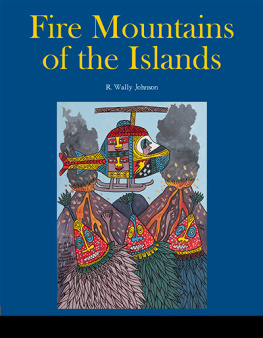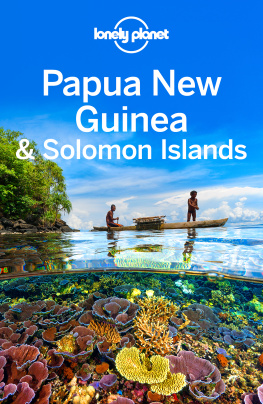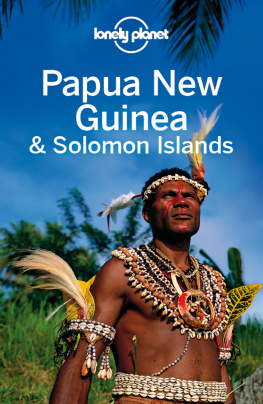T HE S TATE AND I TS E NEMIES IN P APUA N EW G UINEANORDIC INSTITUTE OF ASIAN STUDIES
Recent Monographs
63.S URVIVAL AND P ROFIT IN R URAL J AVA
Sven Cederroth
64.T HE S TATE AND I TS E NEMIES IN P APUA N EW G UINEA
Alexander Wanek
65.M ISSION AND T AMIL S OCIETY
Henriette Bugge
66.F OLK T ALES F ROM K AMMU ( V OLUME 5)
Kristina Lindell, Jan-jvind Swahn and Damrong Tayanin
67.I SLAM AND P OLITICS IN A FGHANISTAN
Asta Olesen
68.E XEMPLARY C ENTRE , A DMINISTRATIVE P ERIPHERY
Hans Antlv
69.F ISHING V ILLAGES IN T OKUGAWA J APAN
Arne Kalland
70.T HE H ONG M ERCHANTS OF C ANTON
Weng Eang Cheong
This study crosses conventional boundaries. It is, on the one hand, a microscopic ethnography of a very tiny island community: that of Nauna, off the coast of Manus in the Admiralty Islands; on the other, it situates this community within the context of a modern nation-state, Papua New Guinea.
Both terms in this equation, though, are problematic, for nearly a century ago it looked as though Naunian society had already disappeared when, after a war, their neighbours had killed, enslaved or sold to European plantations all but a handful of the population. By the 1930s, only five couples remained on the island.
Likewise, Papua New Guinea is a singularly weak entity, even though it has an elaborate state apparatus: 30 ministers in central government; 150 national and provincial ministers altogether; 500 MPs; 50,000 public servants in the capital, and 19 roomy provincial administrations. Manus has an administration with 16 separate units and about 500 public servants. Three-quarters of public expenditure goes on the salaries of this huge governmental apparatus. The salaries of a few provincial ministers alone cost about as much as the expenditure on medicine for the entire province.
However, only a third of the national budget is financed by internal means. Major parts of the budget are financed by Australia. In the colonial era, sugar and bananas were produced in tropical Australia itself; coffee, cacao and copra were assigned to New Guinea. Nationalization and the redistribution of land after independence ruined these latter industries. Today, the major components of domestic production are two huge minesone near the Irian Jaya border, the other on Bougainville. They are so important that the most ruthless measures have been used to drive the local peoples off their land. On Bougainville, the result has been a civil war of self-defence. And, once more, Australia pays 60 per cent of PNGs defence budget.
The weakness of the state is not, however, simply financial or political. Culturally, too, Papua New Guinea is, in Waneks words, a conglomeration of fragments derived from various local traditions. Given the geography of the country, where gigantic mountain ranges often separate tiny tribal communities from their nearest neighbours, the idea that they all belonged to the same nation-state was foreign to the thinking of perhaps the majority of its inhabitants at the time of independence in 1975. So the nation had to be invented. The ideology which emerged was the Melanesian Way: an amalgam which, though designated kastam (custom), was in fact created out of elements taken from the cultures of various peoples who, before the modern epoch, had often not been aware of each other (close neighbours, however, were usually traditional enemies), except via the shared experience of labour on plantations and as common subjects of the colonial state.
In a country where even many members of the national and provincial bureaucracy, as well as teachers in schools, cannot speak English and where Tok Pisina perfectly viable languageis still only spoken by less than half of the population, where only a small handful read daily newspapers, and where two thirds of the population are illiterate, the promulgation of the new nationalist ideology could scarcely be accomplished via the printed word. So theatrical troupes, dance teams, and other agencies of nation-building were set up to promote the new ideology. Wanek, who worked in this field, provides us with a unique insiders view of this aspect of the process.
A minority, especially the generation which graduated from the Administrative College and the University in Port Moresbyno more than a thousand of them at independenceseized on the new opportunities presented by the state. Since there was no organized mass party, they campaigned on issues which affected them rather than the masses, in particular their inferior position in the dual colonial racist public service system. In the provinces, too, a new generation of local politicians rapidly took over power in the local agencies of the state. The patronage they dispensed enabled them to build a network of political support. But, for the majority, there was nothing. Not surprisingly, opposition to the rule of the new supertribeas Wanek calls the political elitedrew upon older social and cultural sources.
World War II was more traumatic in Manus than practically anywhere else in the Pacific. The Admiralty Islands, with a population of only some 13,000, were suddenly exposed firstly to invasion and the overthrow of the Australian regime by the Japanese and then to the arrival of no less than one million American troops, who were in general wealthier and more egalitarian than either the Australians or the Japanese. Many of them, too, were black! Explaining these cataclysmic changes called for a special kind of thinking. By the end of World War II, as elsewhere in Melanesia, a cargo movement, promising the total transformation of the social ordereven the transformation of naturehad emerged as the major form of political self-expression.
It drew both upon indigenous religion and Christian ideas, the latter, via mission teaching, the only form of European thought available to the natives, and one which interpreted White culture in uniquely religious terms. Though there were various strands in the ensuing development of the often rival cults and interpretations which grew up on Manus, leadership became concentrated in the hands of one outstanding prophet, Paliau, and remained so until his death in 1991.
Paliau drew upon traditional ideas about spirits and deities. Cargo elements, too, were retained and developed: notably the belief that the faithful would be able to tap wealth which would appear in supernatural (actually subterrestrial) form from factories in the groundprobably derived from knowledge of the rich minesmerely by the exercise of faith: by thinking a factory. But material wealth was not all: when the new order prophesied by Paliau arrived, there would no longer be either death or sickness. Hard work would be replaced by a time of malolo: a time of rest, leisure, and idly sitting in the shadow which Naunians connect with having a good time, smoking, chewing betelnuts, and telling stories.





